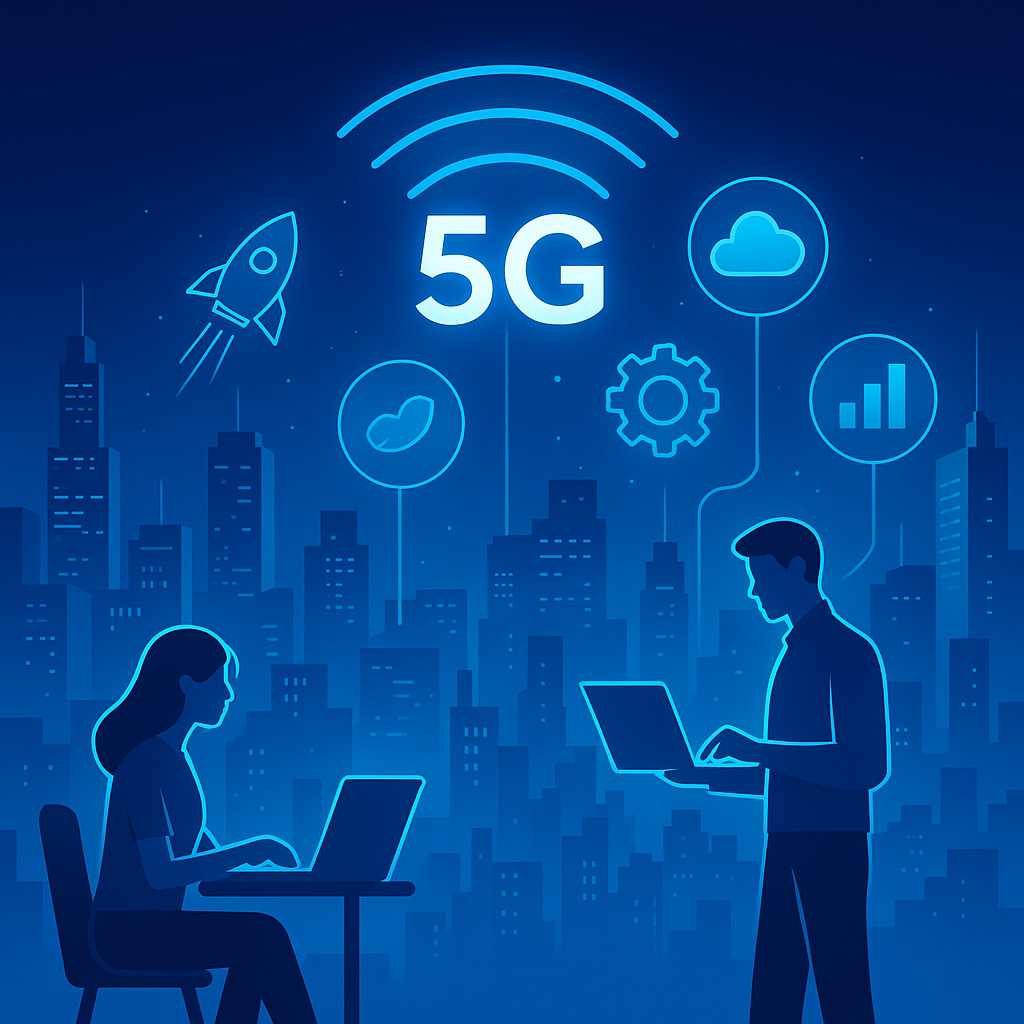
The Impact of 5G Technology on Startup Innovation in 2025
Introduction
As we step into a hyperconnected digital era, the impact of 5G on startups is becoming impossible to ignore. The rollout of 5G technology for startup innovation is opening new doors—from real-time communication and ultra-fast connectivity to edge computing and automation. But how exactly is 5G changing business models, enhancing products, and unlocking entirely new markets for startups in 2025?
In this blog, we’ll explore the transformative power of 5G and how it’s shaping the future of entrepreneurship, product development, and digital transformation for early-stage companies.
Already investing in smart tech? Don’t miss our post on Top Cybersecurity Challenges and Solutions for Startups to protect your innovations.
What is 5G Technology and Why It Matters
5G is the fifth generation of mobile network technology. It promises:
- Ultra-low latency (as low as 1 millisecond)
- Faster download/upload speeds (up to 10 Gbps)
- Massive device connectivity (supporting IoT and smart devices)
- Edge computing capabilities (processing data closer to the source)
These features are not just technical upgrades—they are strategic tools that enable startup innovation at a scale never seen before.
Key Benefits of 5G for Startups
1. Faster Product Development and Testing
With ultra-low latency and real-time feedback, developers can test apps, software, and IoT devices much faster. Startups in fields like gaming, AR/VR, or health tech can roll out MVPs quicker and iterate faster.
For startups using real-time tools, this means fewer delays and faster feedback loops.
2. Real-Time Data Processing
5G enables seamless real-time data analytics, making it perfect for:
- Healthtech monitoring
- Smart logistics
- Fintech transactions
- Remote operations
Startups relying on real-time decision-making will benefit tremendously from the increased data throughput of 5G networks.
3. Unlocking IoT and Edge Computing Potential
With 5G and edge computing, startups can deploy smart devices, sensors, and wearables more effectively. Imagine:
- Smart homes
- Connected factories
- Autonomous delivery bots
5G helps process information on the edge, reducing lag and improving performance, while cutting cloud dependency.
4. Remote Work and Global Collaboration
Startups can now operate seamlessly with distributed teams across time zones. High-speed, stable connections mean:
- Smooth video conferencing
- Real-time collaboration on cloud platforms
- Remote control of robotics and smart devices
5G isn’t just a tech upgrade—it’s a productivity multiplier.
5. New Business Models and Monetization Opportunities
With 5G, startups can:
- Launch AR/VR platforms for education, training, or e-commerce
- Build AI-driven smart apps that react instantly to user input
- Offer subscription-based IoT services
It fuels digital transformation by enabling innovative use cases that weren’t possible on 4G networks.
Industries Where 5G Is Driving Startup Innovation
| Industry | 5G-Driven Innovation Examples |
|---|---|
| HealthTech | Remote surgery, real-time patient monitoring |
| AgriTech | Smart irrigation, drone-based crop monitoring |
| Retail | AR-enabled shopping, inventory tracking sensors |
| Fintech | Instant mobile banking, fraud detection with AI |
| Logistics | Autonomous vehicles, predictive fleet management |
| EdTech | Immersive learning, real-time classroom collaboration |
Challenges Startups May Face with 5G Adoption
While the opportunities are vast, there are hurdles too:
- High infrastructure costs in early stages
- Cybersecurity concerns due to more connected endpoints
- Limited 5G availability in rural or developing areas
- Hardware compatibility with 5G devices
Don’t forget to secure your 5G infrastructure—read our Cybersecurity Guide for Startups for tips.
How Startups Can Prepare for a 5G Future
- Build for scale and speed – Optimize applications for low latency and fast processing.
- Incorporate IoT and AI – Explore business ideas that thrive in a connected environment.
- Partner with 5G-ready vendors – Choose cloud providers and APIs that are optimized for 5G.
- Prioritize cybersecurity – Secure your data pipelines and endpoints from the ground up.
- Stay informed – Follow 5G rollouts in your region and plan your product roadmap accordingly.
